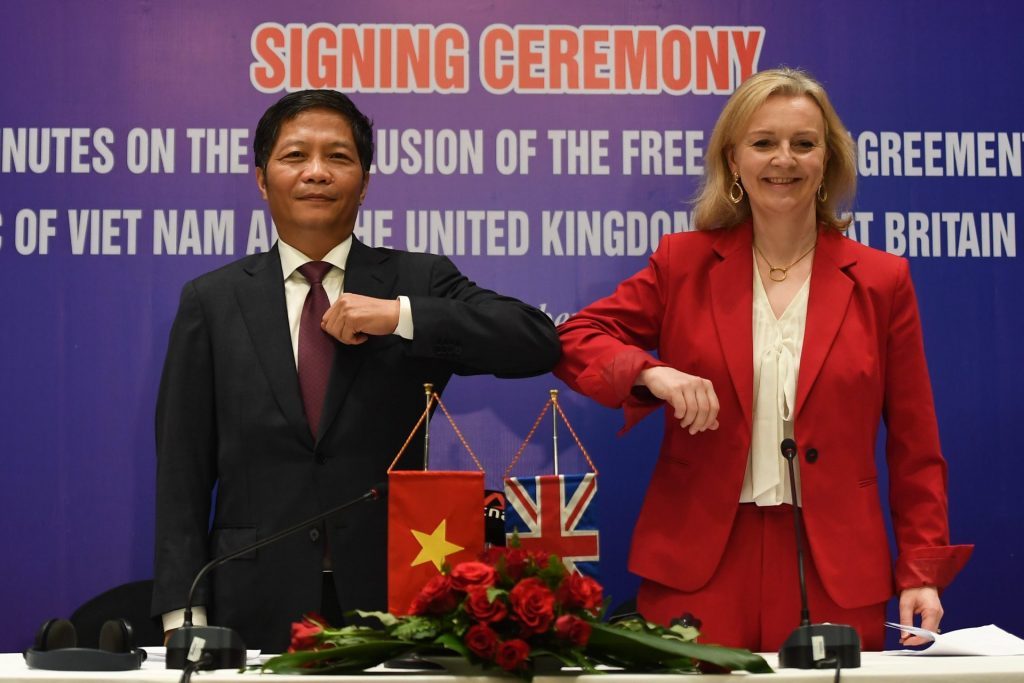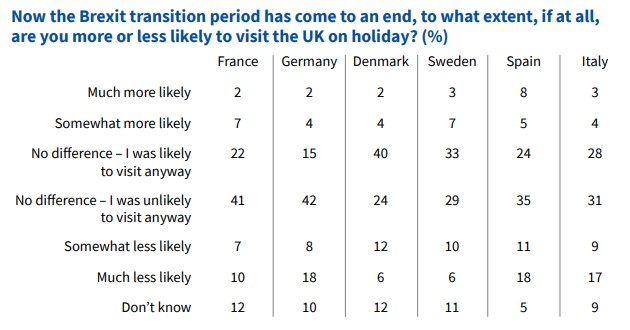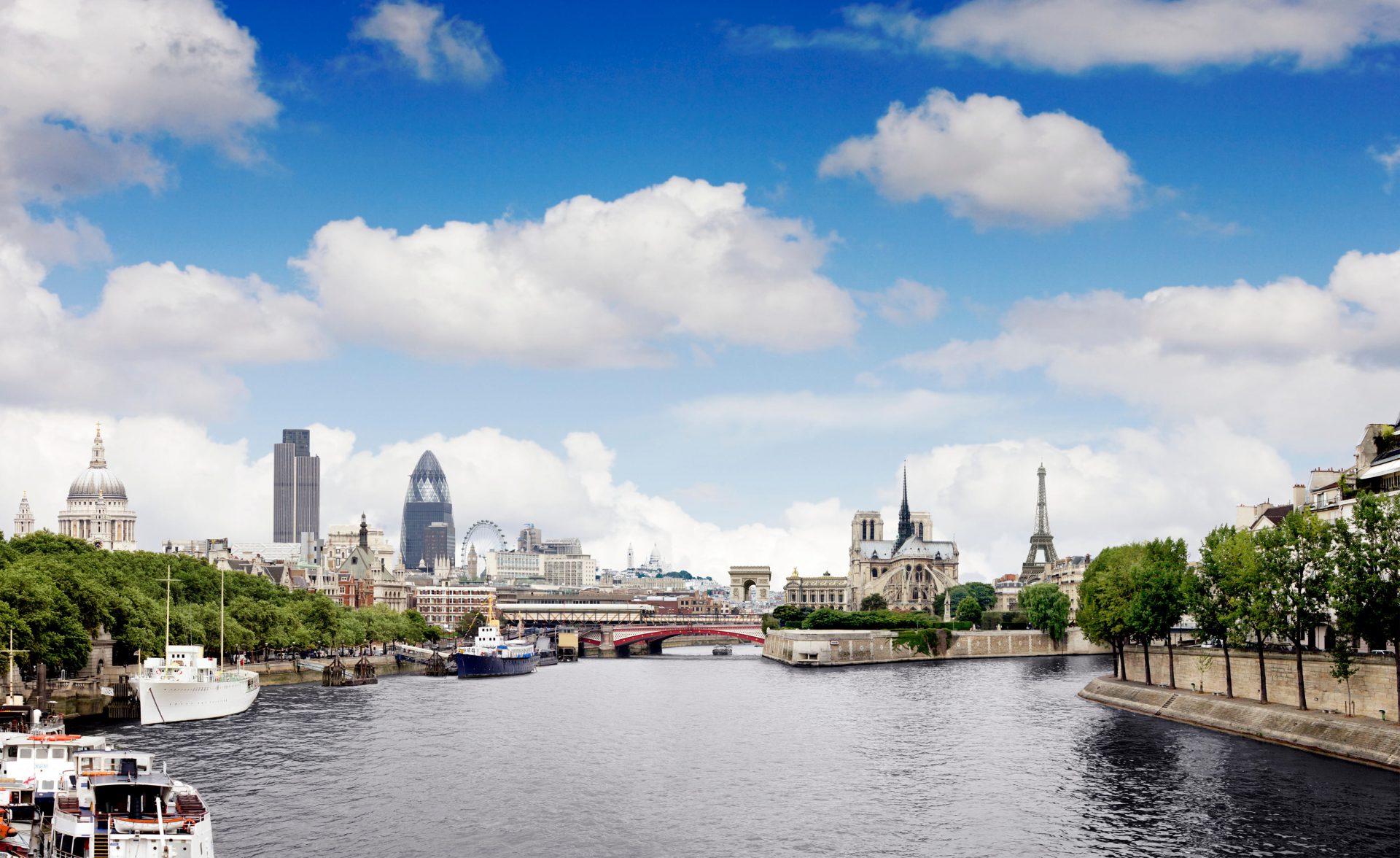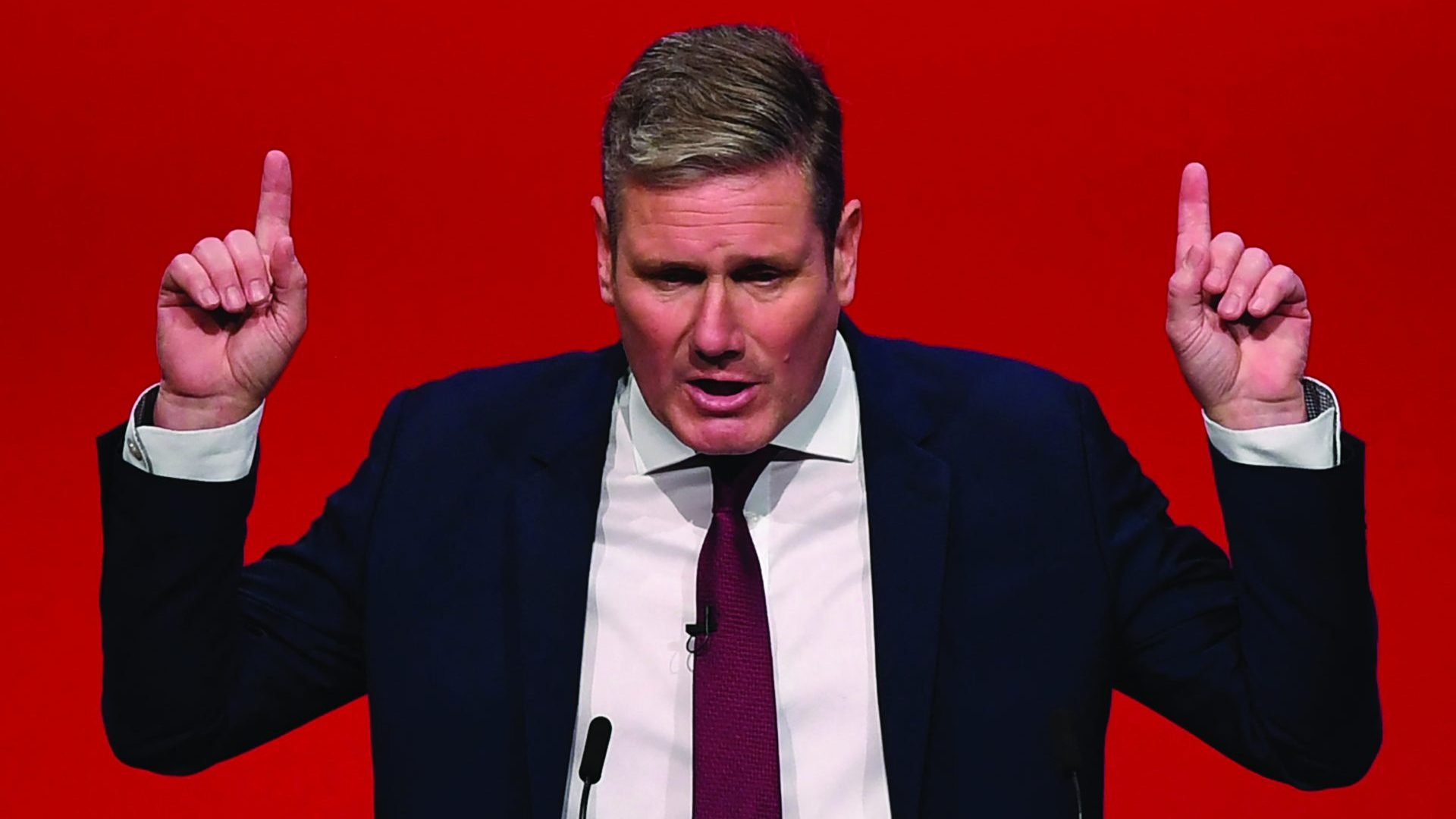If Shakespeare’s Brutus is right that there is a tide in the affairs of men, it has gone out a long way in the affair of UK-EU relations, leaving a surprisingly rocky foreshore. But tides have a habit of turning, and this one will as well.
The question is how and when the great re-connecting will happen.
An assessment of where we go next has to start with how we got here. The messy outcome of the Brexit negotiations was due at least in part to the fact that the two sides were pursuing radically different objectives. For Brussels, these were legal and economic, in particular protecting the integrity of the single market. For the Johnson government, it was an ideological quest to take back nominal sovereignty and exclude the EU from our national life as far as possible, whatever the cost.
Both sides largely got what they wanted and the full implications of Britain’s choice will not become apparent until after the point where the pandemic can be used as a cover. Only then can an honest national debate begin about the true cost of this ideological crusade, and what should be done about it.
The polls are beginning to show a realisation that the economic damage caused by leaving the EU has been far greater than the Leave campaign ever suggested.
But my view is that the economic and financial relationship will be the last to emerge from the deep freeze, because it is the most heavily freighted with ideology, as the dispute over the Northern Ireland Protocol has shown.
Reconnecting with Europe will be a gradual process, and as well as steps forward there will be steps backwards. One of these is likely to be over Northern Ireland.
European confidence in the UK’s reliability as a treaty partner has been badly damaged by London’s demands for significant changes to the Protocol which they signed up to less than two years ago and there seems little prospect that the issues can be settled through arbitration.
We are on the road to an open crisis, a suspension of parts of the Protocol and retaliatory measures by the EU. Whether such a crisis can open the way to a new solution accepted by all sides is one of the biggest questions hanging over the course of UK and EU relations in the coming years.
But as well as steps backwards, there will be steps forward. The first building blocks of a more constructive relationship are much more likely to be found in the areas where ideology played, and continues to play, less of a part.
On justice and security, there is already a good deal of common ground, and although Britain is now excluded from Europe’s SIS II real-time information exchange and alerting system, which was heavily used by UK police forces, we still enjoy law-enforcement co-operation through Europol, access to EU crime-scene databases and similar arrangements to the European Arrest Warrant for returning fugitives from justice.
There is similar common ground to find in foreign policy. Britain and EU countries look out at the world from the same geographical vantage point, and since leaving the EU, Britain has often found itself closer to the EU position than to that of Washington, whether run by Trump (with whom we differed on issues from climate change to handling Russia) or Biden (who blindsided the UK and Europe over the military pull out from Afghanistan).
With the main threats to British national security still arising in Europe and its neighbourhood – from Russian adventurism, Islamist terrorism and migrant flows from the Middle East – and without a seat at the regular meetings of EU foreign ministers, it is strongly in Britain’s interest to establish a forum to debate the latest foreign policy issues and align approaches where possible. British membership of NATO and co-ordination with France and Germany in the so-called E3 format only partly fill the gap.
Getting back to regular consultations on foreign and security policy should be a high priority when the current British government’s strongly adversarial approach to the EU begins to moderate. Together with justice and security, it would provide a bridgehead of practical co-operation which could be expanded when tensions ease.
Other candidates for early reconnection include the Erasmus educational exchange programme, once the weakness of the UK’s Turing scheme becomes apparent, and greater involvement in the Horizon research programme, given the UK government’s intention of making the UK a science and technology superpower by 2030.
In the lifetime of the Johnson government, I do not see the reconnecting going beyond preserving and possibly expanding agreements on justice and security, and taking incremental steps towards closer foreign policy cooperation. His administration is unlikely to agree to work with the EU on defence, whether contributing to EU military missions, joining defence industrial project co-ordinated by the commission, or participating in policy discussions. This will be a disadvantage for both sides because Britain is, along with France, one of the two first-rank military powers in Western Europe, and ought to be fully involved in the current debate about European strategic autonomy, ensuring that this develops in a way compatible with NATO.
It is a safe assumption too that while the current group of senior British ministers are in office, the UK will not align with the EU’s single market or customs union, or its web of financial regulation. They have staked too much on the supposed benefits of taking Britain out of the EU’s regulatory framework. Hence the very public drive to conclude free-trade agreements with friendly but distant nations such as Canada, Japan and Australia, even though the government’s own figures suggest that they will collectively add less than 0.1% to Britain’s GDP.
President Biden is in no hurry to negotiate a trade deal with the UK, and even if he was, it would require difficult compromises in areas such as food standards and animal welfare, against a background of strong public reluctance to see these weakened for the sake of an agreement with the US.
I examined in my book Hard Choices a number of dilemmas facing Britain as it evolves a new national strategy for life outside the European Union.
One of them, which I called the mercantilist trap, examined the issues raised in the search for trade deals. By signalling how desperately the UK needs free-trade agreements to make up for the hit to its economy on leaving the EU, London has handed the negotiating leverage to the other party.
Securing agreements (particularly with powerful economies) will often come down to a series of choices over how far to meet their demands for access to the British market, or for alignment with their standards. This applies not just to trade in goods, but to the services industry and in cross-cutting issues such as data protection.

Britain will also be vulnerable to pressure from countries with strong economies but poor human rights records, such as China and Saudi Arabia, to tone down criticisms of their internal policies. Outside the protective cover of EU membership, the UK faces a constant balancing act between commercial imperatives and advocacy of fundamental values.
In short, Britain will find that a world increasingly divided between great power spheres of influence is an unforgiving place for a middle-sized trading nation operating alone.
This realisation will eventually bring British governments back to the conclusion that the country’s prosperity depends on close political, trade and financial relations with its nearest neighbours. But it is likely to take a decade or more for that to become fully clear.
What can we do in the meantime? The British government cherished the hope in the years after the Brexit vote that it would be possible to foster close links with individual EU countries while moving to a much more distant relationship with the EU itself. Yet while some bilateral business with each EU member state will continue, each EU member will be much more closely involved with its EU partners on almost every aspect of governmental activity than it will with the UK. For as long as the EU-UK link remains dysfunctional, it will be difficult to develop close bilateral partnerships with any single member state.

The dismal spectacle of the descent of UK-French relations into a series of public rows demonstrates the case. The loss of confidence between London and Paris has spread well beyond EU business. The Lancaster House treaties of 2010, which set out an ambitious programme of defence co-operation between the two countries, has suffered. Although the armed forces continue to work well together, many of the defence industrial projects envisaged in 2010 have not taken place, and neither side seems to be in the mood for new initiatives to relaunch the relationship.
While we await better times in inter-governmental relations, non-governmental links with EU countries will be even more important than they have traditionally been. Britain’s departure from the EU has not altered the fact that millions of British people live full or part-time in EU countries, and although some EU citizens have left the UK, many more remain. Britain’s soft power attractiveness remains strong.
Brexit does not seem to have diminished the monarchy’s hold on the popular imagination in many European countries.
The UK’s vibrant tourism, sport and cultural sectors continue to be popular. The BBC and British Council command great respect.
Performing arts groups wishing to tour in EU countries face irksome new obstacles to be able to perform in EU countries. Nevertheless, they continue to contribute to the dense web of human links binding the UK closely to its European neighbours, from sports tournaments, arts festivals and town-twinning to business, academic and scientific forums and conferences. All these are crucial in keeping alive the exchange of ideas and the fostering of friendships which are the foundation on which better governmental relations will eventually be built.
To return to Brutus, he went on to observe that, if men miss the tide of fortune they are “bound in shallows and in miseries”. That seems a pretty accurate description of the present state of relations between the UK and its neighbours. But I am convinced that within a decade or so a new generation will have moved into the top jobs in British politics, business and the media. These new leaders will not carry the same ideological baggage as those currently pulling the levers of power.
For example, in the 2016 referendum polling evidence suggested that more than 70% of 18 to 24 year olds voted to remain. They do not see the EU as a threat. They are the generation of Erasmus and easyJet, who were able to travel around Europe without hassle, to study, work, love and settle where they chose, without restrictions.
Rejoining the EU any time soon is not, in my view, a feasible proposition. But I am very confident that new leadership on both sides of the Channel will find ways to restore a mature, productive relationship between this country and its nearest neighbours which is so sorely lacking today.
Lord Peter Ricketts was Britain’s ambassador to France between February 2012 and January 2016.



